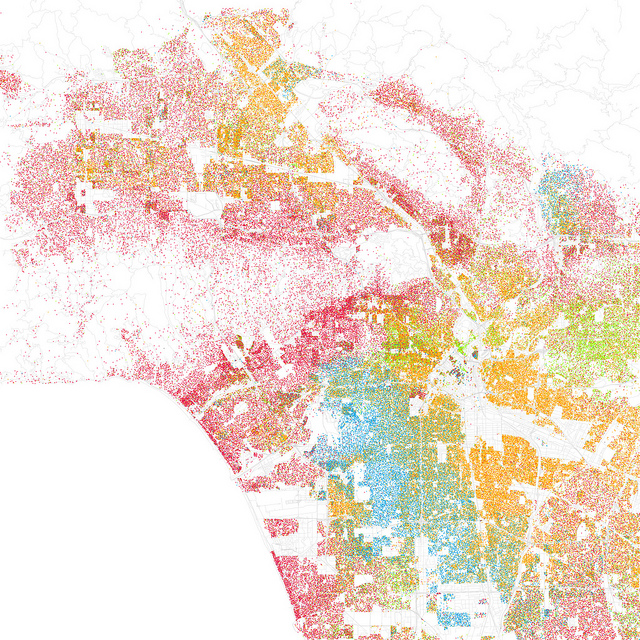
In an era of “post-racial” rhetoric, whites may not openly declare their prejudices and biases toward blacks and other racial and ethnic minorities, yet sociological research illustrates how whites may both consciously and unconsciously maintain and reproduce racial segregation in schools and neighborhoods. More subtle negative racial attitudes are persistent and pernicious. A recent article in The Atlantic showcases a few of sociologies most relevant studies on whites and racial segregation that challenge the myth of a post-racial America.
The white family is essential for the transferring and maintaining of economic wealth. Sociologist Thomas Shapiro notes that middleclass white families use their financial resources to pay for kids’ college or housing payments, thus alleviating some of the financial burden from younger generations. Racial segregations is also reproduced in this process when whites invest in neighborhoods that provide access to majority white schools. Due to the wealth gap, most blacks do not hold the privilege of supporting younger generations with existing financial wealth. Instead, researchers report they are more likely to use more limited funds to support their own parents and additional extended family members.
The work of sociologists including Mary Pattillo, Douglas Massey, and Nancy Denton has further demonstrated that blacks are not geographically located in neighborhoods that provide access to well funded schools, even when black families are homeowners. Other researchers such as Deirdre Royster and Lauren Rivera discuss the importance of exclusive white networks that systematically neglect blacks when sharing vital information about education and careers in schools and workplaces.

Comments